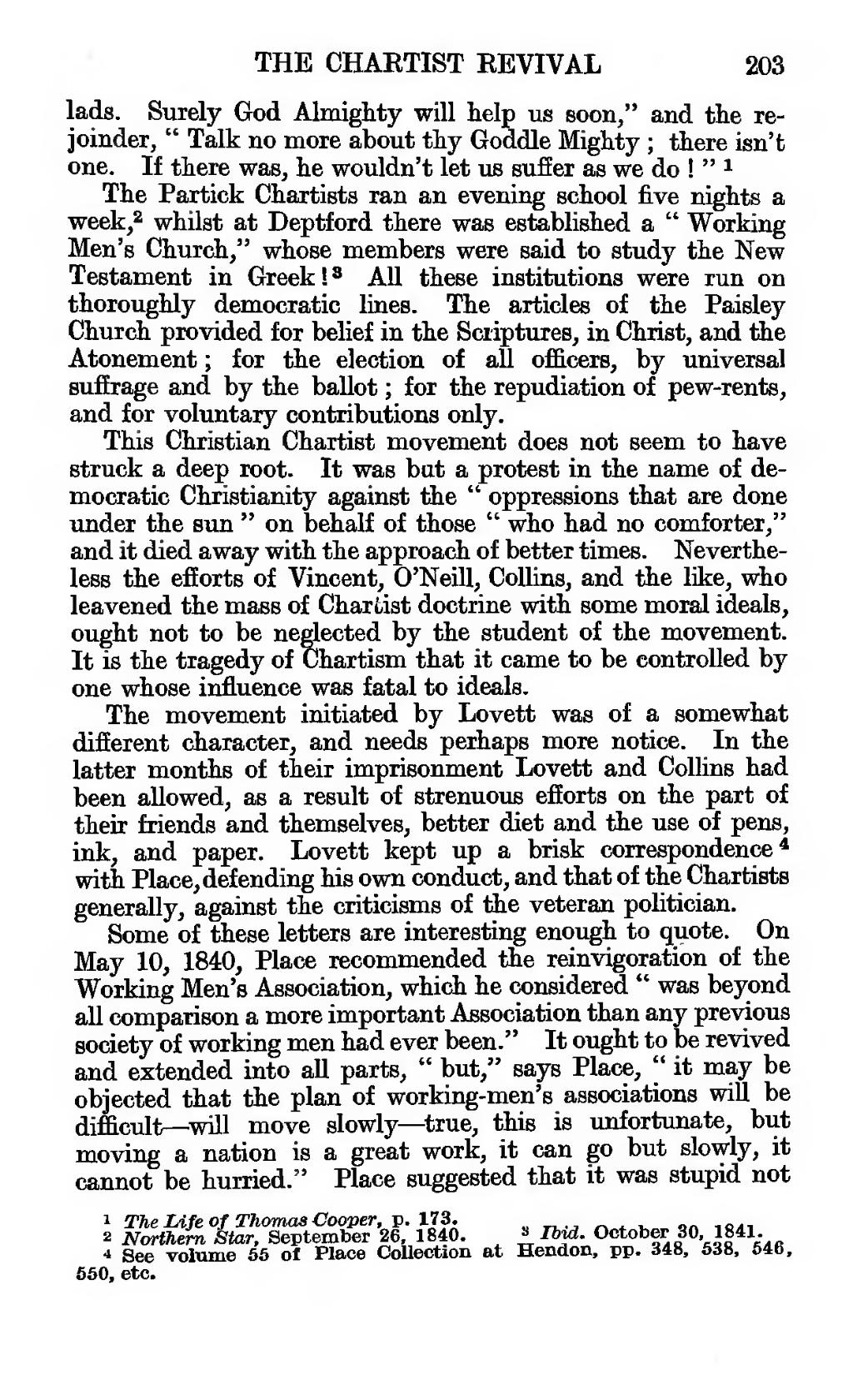lads. Surely God Almighty will help us soon," and the rejoinder, "Talk no more about thy Goddle Mighty; there isn't one. If there was, he wouldn't let us suffer as we do!"[1]
The Partick Chartists ran an evening school five nights a week,[2] whilst at Deptford there was established a "Working Men's Church," whose members were said to study the New Testament in Greek![3] All these institutions were run on thoroughly democratic lines. The articles of the Paisley Church provided for belief in the Scriptures, in Christ, and the Atonement; for the election of all officers, by universal suffrage and by the ballot; for the repudiation of pew-rents, and for voluntary contributions only.
This Christian Chartist movement does not seem to have struck a deep root. It was but a protest in the name of democratic Christianity against the "oppressions that are done under the sun" on behalf of those "who had no comforter," and it died away with the approach of better times. Nevertheless the efforts of Vincent, O'Neill, Collins, and the like, who leavened the mass of Chartist doctrine with some moral ideals, ought not to be neglected by the student of the movement. It is the tragedy of Chartism that it came to be controlled by one whose influence was fatal to ideals.
The movement initiated by Lovett was of a somewhat different character, and needs perhaps more notice. In the latter months of their imprisonment Lovett and Collins had been allowed, as a result of strenuous efforts on the part of their friends and themselves, better diet and the use of pens, ink, and paper. Lovett kept up a brisk correspondence[4] with Place, defending his own conduct, and that of the Chartists generally, against the criticisms of the veteran politician.
Some of these letters are interesting enough to quote. On May 10, 1840, Place recommended the reinvigoration of the Working Men's Association, which he considered "was beyond all comparison a more important Association than any previous society of working men had ever been." It ought to be revived and extended into all parts, "but," says Place, "it may be objected that the plan of working-men's associations will be difficult—will move slowly—true, this is unfortunate, but moving a nation is a great work, it can go but slowly, it cannot be hurried." Place suggested that it was stupid not
- ↑ The Life of Thomas Cooper, p. 173.
- ↑ Northern Star, September 26, 1840.
- ↑ Ibid. October 30 1841.
- ↑ See volume 55 of Place Collection at Hendon, pp. 348, 538, 546, 550, etc.
